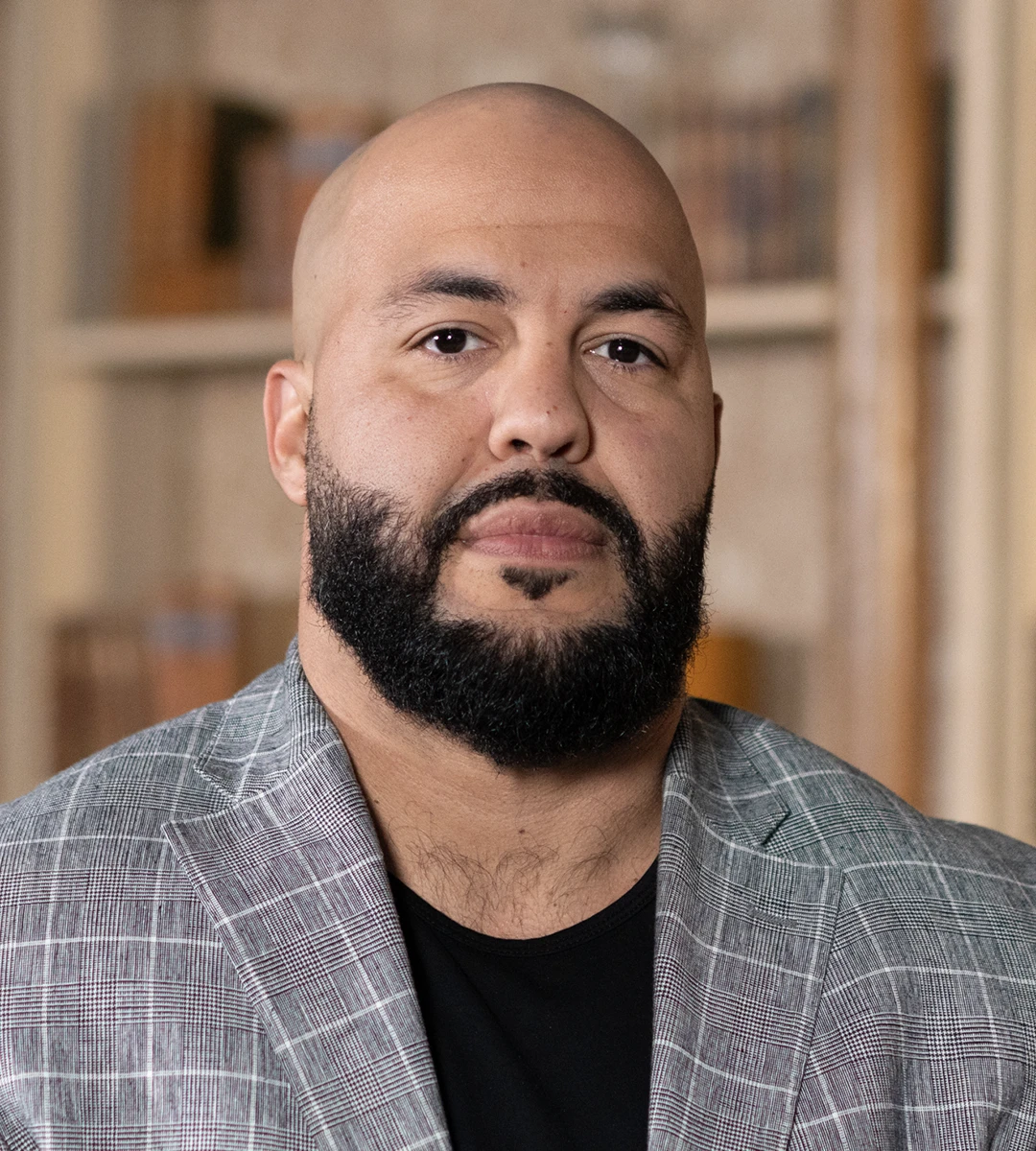
David Park
Founding General Partner at the Global Innovation Fund (GIF)
David Park is the Founding General Partner at the Global Innovation Fund (GIF), an external venture fund for leading research organizations. Previously, he was Regional Partner at Kairos Ventures, where he supported the investment team and focused on pioneering investments in sectors such as Life Sciences, Biotechnology, and AI. With extensive experience in scientific innovation, David has expertise in materials science, energy, advanced communications, AI/ML, bioscience and medical technologies. He actively advises portfolio companies on strategic direction and operations and engages as a Limited Partner in multiple venture funds and early-stage startups. A proud UCLA alumnus, David is also a philanthropist supporting K-12 education and technology conservation. He founded The Innovation Foundation, is a member of the Forbes Leadership Council, advisory member at Marcellus Wiley's Project Transition, and was recognized as an honorary member of Variety Magazine’s Top 100 Young Entrepreneurs of Silicon Beach.
.svg)

Christopher Perrin
Christopher Perrin, MDiv, PhD, is the CEO with Classical Academic Press, and a national leader, author, and speaker for the renewal of classical education. He is the author of An Introduction to Classical Education: A Guide for Parents, Greek for Children Primer A, The Scholé Way: Bringing Restful LearningBack to School and Homeschool, and co-author of The Good Teacher: Ten Key Pedagogical Principles that Will TransformYour Teaching, as well as the Latin for Children series.
He serves as a consultant to classical Christian schools, schools converting to the classical model, and homeschool co-ops. He is the board president of the Alcuin Fellowship, former co-chair of the Society for Classical Learning, and an adjunct professor with the honor's program at Messiah College and with the Classical School Leadership master’s program at Gordon College. Chris previously served for ten years as a headmaster of a classical Christian school in Harrisburg, PA.
.svg)

Robert Pondiscio
Robert Pondiscio is a senior fellow at the American Enterprise Institute (AEI), where he focuses on K–12 education, curriculum, teaching, school choice, and charter schooling. Before joining AEI, Mr. Pondiscio worked at the Thomas B. Fordham Institute and the Core Knowledge Foundation. He was also an adviser and civics teacher at Democracy Prep Public Schools. He began his education career teaching fifth grade at a struggling South Bronx public school in 2002. Before that, he worked in journalism for 20 years, including in senior positions at TIME and BusinessWeek.
He has been extensively published in the popular press, including in the Atlantic, Education Next, the New York Daily News, and the Wall Street Journal. Mr. Pondiscio is the author of How the Other Half Learns: Equality, Excellence, and the Battle over School Choice (Avery, 2019).
.svg)

Allen Porter
Assistant Professor of Philosophy
Allen Porter is a philosopher from New Orleans with interests in phenomenology, ethics, politics, the philosophy of technology, and the history of philosophy.
Prior to becoming Assistant Professor of Philosophy at the University of Austin, Dr. Porter was a postdoctoral associate at the University of Florida’s Hamilton Center for Classical and Civic Education. Before that, he was a John and Daria Barry Postdoctoral Research Fellow at Princeton University’s James Madison Program in American Ideals and Institutions. He received his Ph.D. in Philosophy from Rice University in 2021. His dissertation, Social Justice Leftism as Deconstructive Postmodernism, analyzed the philosophical foundations of the political ideology nowadays known as “wokeism” or “woke leftism.” He holds a M.A. in Philosophy from Tulane University and a B.A. in German from Princeton University.
Dr. Porter is most known for his work on transhumanism and posthumanism. He is currently producing an edited volume, Phenomenology & Posthumanism(s), for Springer’s Philosophical Studies in Contemporary Culture book series, as well as contributing several chapters on transhumanism to other forthcoming volumes. Dr. Porter’s other lines of research and publication projects are united by his concern to elaborate and apply the Heideggerian existential phenomenology which provides the primary philosophical and methodological ground for all his work.
Dr. Porter has been published in peer-reviewed journals including Interpretation: A Journal of Political Philosophy, The Journal of Medicine and Philosophy, and the International Journal of Philosophical Studies, as well as in The Wall Street Journal, Law & Liberty, and RealClearPolitics, among others. He is a member of the Editorial Advisory Board of The Journal of Medicine and Philosophy. When not preoccupied with philosophy, professional matters, politics, or the mundane necessities of everyday life, he enjoys powerlifting, reading fiction, and watching Red Letter Media.
.svg)

Matthew Post
Lead Academic Consultant
Matthew develops educational programs fostering vibrant communities dedicated to excellence, liberty, civic friendship, and service to the common good.
An ardent advocate of the renewal of classical liberal education, he was inaugural director of the first graduate K–12 classical teacher formation program in the U.S. He has founded, developed, supervised, and fundraised for other programs serving education reform, including undergraduate and graduate degrees, K–12 professional and curriculum development services, a center, and a lab school, among other initiatives. He works with teachers and schools across the U.S. and Europe, teaching courses in literature, philosophy, history, and civics, among other areas.
.svg)

MacKenzie Price
MacKenzie Price, co-founder of 2hrLearning and Alpha Schools, is revolutionizing K-12 education. Her 2hr Learning platform harnesses the power of AI to offer students personalized, mastery learning, allowing them to spend just 2 hours a day on academics while scoring in the top 2% nationally, freeing up most of their day to pursue passions, learn life skills and do project-based workshops.
Price shares her ideas about reimagining education with her considerable social media presence, including her 300K followers on Instagram, her YouTube channel and through her top-rated Future ofEducation podcast (top 5 Apple podcast in Kids & Family). Price sits on theForbes Technology Council. She serves as an education consultant for critically acclaimed learning apps and participated in Harvard-led research focusing on student motivation.
A Stanford University grad with a BA in Psychology, Price lives in Austin, Texas with her family.
.svg)

Alex Priou
Professor of Political Philosophy
Alex Priou received a Ph.D. and M.A. in Philosophy from Tulane University, an M.A. in Liberal Arts from St. John’s College, and a B.A. in Political Science from the University of Connecticut.
Priou is the author of three books on Plato: "Becoming Socrates: Political Philosophy in Plato’s Parmenides" (2018), "Defending Socrates: Political Philosophy Before the Tribunal of Science" (2023), and "Musings on Plato’s 'Symposium'" (2023). He has also written essays on the history of philosophy for various journals and edited volumes in Classics, Philosophy, Political Science, Literature, and Film, including studies of Homer, Hesiod, Parmenides, Plato, Aristotle, and beyond. He also engages in public scholarship, occasionally writing for a general audience, but most frequently with The New Thinkery, a weekly podcast he co-hosts with his two close friends, Gregory McBrayer and David Bahr. Together, they aim to model friendly and fun conversations between friends on texts and topics in the history of philosophy.
Priou is currently at work on a book on Plato’s Republic that will offer a comprehensive overview of its drama that situates the characters, with all their hopes, opinions, and commitments, in the context of the political events that have shaped them. He hopes to show how Socrates’ investigation of the good life amid the political and moral decline of imperial Athens can serve as a model for us today, confronted as we are by similar circumstances. After that, he plans to resume work on a non-historical study of the nature of civilization and barbarism intended for a more general, educated audience.
.svg)

Anne Protopappas
Anne Protopappas is an experienced educator from Paris whose career spans 35 years designing and teaching world language curricula in prominent American colleges and K-12 rigorous institutions. Anne’s research interests focus on the interplay between education and democracy with a focus on the cross-cultural praxis of free speech, and the field of international education that she experienced through her multilingual and inter-disciplinary training in Global History, Political Philosophy, and Asian Studies at the Paris Institute of Political Studies, Columbia University, and Beijing Language and Culture University.
A French native speaker who is fluent in English and proficient in Chinese, Anne has advanced knowledge of Japanese and Spanish, and she is increasing her expertise in comparative educational models by pursuing a dual master’s in teaching & learning at the Paris Sorbonne and the New Zealand University of Canterbury, along with her IB teaching certification at the University of Toronto’s Institute for Studies in Education.
Anne brings a wealth of experience from teaching a wide range of students of all ages in the Humanities, organizing international trips, advising students, crafting cross-cultural and cross-disciplinary programs for the Language & Culture Institute she created, and inspiring her students to “analyze and question the world” around them while “falling in love with learning.”
.svg)

David Puelz
Associate Professor of Statistics & Data Science
David Puelz is a Bayesian statistician and professor working at the intersection of computational data analysis and machine learning. He writes and researches on economics, the social sciences, and applied artificial intelligence. He was formerly a professor at The University of Texas at Austin in The School of Civic Leadership and McCombs School of Business, and prior to that, a postdoctoral researcher at the University of Chicago Booth School of Business and an analyst for Goldman Sachs & Co. He received a B.A. in Mathematics and Physics from Wesleyan University and an M.S. and Ph.D. in Statistics from The University of Texas at Austin.
.svg)

Jonathan Rauch
Senior Fellow, Brookings Institution
.svg)
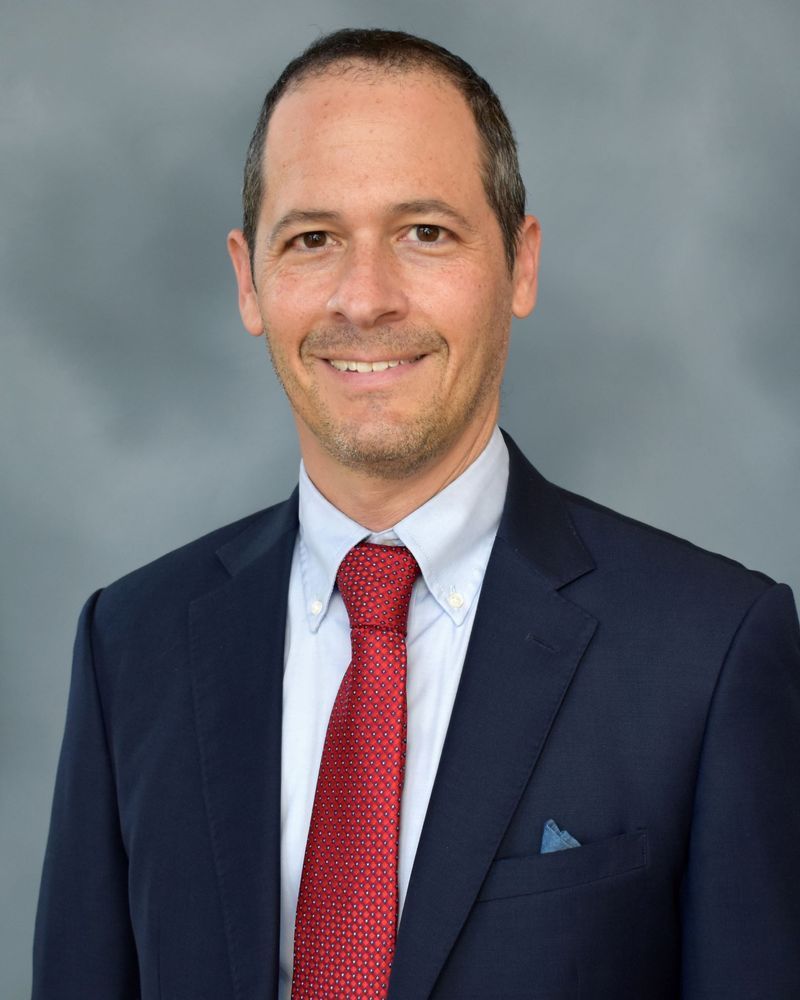
Joshua Rauh
Economist & Senior Fellow, Hoover Institution, Stanford University
.svg)

Isabella Reinhardt
Assistant Professor of Classics
Isabella Reinhardt works on Greek thought of the 5th-century BC. She received her PhD in Classics from the University of Pennsylvania in 2021. Before taking up her position at UATX, she was a Senior Lecturer in the Department of Classical and Mediterranean Studies at Vanderbilt University. Her research focuses on Greek tragedy, particularly the dramas of Aeschylus, and presocratic philosophy. Isabella’s current book project, Absent Present: Language and Concept in Early Greek Thought, examines the link the between abstract knowledge and language in 5th-century Greece. A forthcoming article from Classical World argues that we may find traces of Parmenidean thought in Aeschylus’ Agamemnon, and that these traces provide insight into the play’s presentation of human knowledge, human suffering, and divine causation.
.svg)

Scott Reznick
Associate Professor of Literature
Scott Reznick is a literary scholar who specializes in nineteenth-century American literature, though his research and teaching interests reside at the intersections between literature, philosophy, and political life more broadly. He will begin teaching at UATX in Fall 2025.
Dr. Reznick’s first book, Political Liberalism and the Rise of American Romanticism (Oxford University Press, 2024), reexamines the relationship between two of modernity’s most important intellectual traditions. It shows how American literary Romanticism developed in response to pervasive conflicts over democracy’s moral dimensions in the early republic and antebellum eras as U.S. writers grew increasingly preoccupied with how individuals come to embrace their most deeply held convictions—and what happens when they encounter others who see the world differently.
His work has also appeared in a range of scholarly journals, including Early American Literature; ESQ: A Journal of Nineteenth-Century Literature and Culture; Arizona Quarterly; and American Political Thought, and he has written about the broader role of literature and the humanities for Inside Higher Ed and The Hedgehog Review Online. He holds a Ph.D. in English from Boston College.
.svg)
.jpg)
Loren Rotner
Associate Provost
Loren Rotner is Associate Provost at the University of Austin. Before joining UATX, he served as Director at the Cosmos Institute and as Special Assistant to the President at St. John’s College in Annapolis.
He has taught classical political philosophy, literature, and history at St. John’s College; American political thought at the United States Naval Academy; the works of Leo Strauss at the University of Austin; and the writings of Adam Smith at the American Enterprise Institute.
Dr. Rotner holds a Ph.D. and M.A. in political science from Claremont Graduate University, an M.A. from the University of Texas at Austin, and a B.A. from Kenyon College.
.svg)
Ian Rowe
Founder and CEO of Vertex Partnership Academies, Senior Fellow American Enterprise Institute
.png)
Ian Rowe
Founder and CEO of Vertex Partnership Academies, Senior Fellow American Enterprise Institute
.svg)

Ian Rowe
Ian Rowe is a senior fellow at theAmerican Enterprise Institute, focusing on education, upward mobility, family formation, and adoption. He co-founded Vertex Partnership Academies, a virtues-based, International Baccalaureate high school in the Bronx, and the National Summer School Initiative, serves as chairman of the board at Spence-Chapin, and is a senior visiting fellow at the Woodson Center.
Following the publication of his book Agency: The Four Point Plan (F.R.E.E.) for All Children to Overcome the Victimhood Narrative and Discover Their Pathway to Power (Templeton Press, 2022), Mr. Rowe leads AEI’s FREE Initiative. The FREE Initiative cultivates a deeper understanding of how family, religion, education, and entrepreneurship weave together a moral fabric that shapes and develops agency in children.
.svg)

David Ruth
Dean of Science, Technology, Engineering, & Mathematics
Professor David Ruth is Dean of UATX's Center for Science, Technology, Engineering and Mathematics. Previously, Ruth held several leadership positions as a Permanent Military Professor of Mathematics at the United States Naval Academy, where he was an award-winning teacher from 2009 until 2022. Ruth has authored several articles in a variety of statistics journals, as well as a book chapter on mathematics in cybersecurity. Prior to his academic work, Ruth led and served as a naval officer with operational experience in submarine and surface warfare, nuclear power, oceanography, and meteorology.
“I love quantitative thinking but I love people even more, and I’m excited to be at a place where those two loves are going to join.”
.svg)

Scott Scheall
Associate Professor of Philosophy & Economics
Scott Scheall is Associate Professor of Philosophy & Economics in the Center for Economics, Politics & History. Prior to joining the University of Austin, he taught for fourteen years at Arizona State University. Scott’s research considers the significance of human ignorance for decision-making, particularly in the political realm. He is the author of two books, F. A. Hayek and the Epistemology of Politics: The Curious Task of Economics and Dialogues concerning Natural Politics: A Modern Philosophical Dialogue about Policymaker Ignorance, a unique textbook freely available for use in courses in political philosophy, political science, economics, and political economy. His work has appeared in journals in philosophy, political economy, history of economics, bioethics, and cognitive psychology. Scott is co-editor of Review of the History of Economic Thought and Methodology, and founder, producer, and former co-host of the long-running podcast Smith and Marx Walk into a Bar: A History of Economics Podcast. He occasionally posts and podcasts at his Substack page, The Problem of Policymaker Ignorance.
.svg)
.png)
Becca Schwinger
Vice President, Community Relations
.svg)

Michael Shellenberger
CBR Chair of Politics, Censorship, & Free Speech
The Chair is intended to advance the study of censorship and the technological, political, economic, and cultural conditions that lead to the suppression of speech. By exposing students to historical and recent manifestations of censorship, the Chair will facilitate the responsible exercise of free speech in a pluralistic society.
Michael Shellenberger is a best-selling author, a publisher of the Twitter files, and a pro-human environmentalist. He has broken a number of major stories, including San Francisco's supervised drug consumption site and cash incentives for homelessness, FBI misinformation about the Hunter Biden laptop, climate pseudoscience and climate anxiety, and more. As a leading expert on the suppression of speech who testifies and advises governments worldwide, Michael is uniquely qualified to lead UATX in its studies of Politics, Censorship, and Free Speech.
“The University of Austin has a mission focused on free and open inquiry, and we want to revitalize that open inquiry, that open debate.”
.svg)

Don Soifer
Don Soifer is Chief Executive Officer of the National Microschooling Center, America’s comprehensive resource center, movement-builder and authority for the most exciting new education movement in a generation. He co-created and co-directed the Southern Nevada Urban Micro Academy, the nation’s first public–private partnership microschool with the City of North Las Vegas, delivering unprecedented academic growth for that community.
Soifer previously served as President of Nevada Action for School Options, an award-winning nonpartisan“action tank” he founded in 2017.
He previously served asExecutive Vice President of the Lexington Institute, a nonpartisan think tank in Arlington, VA that he cofounded in 1998, where he directed the institute’s education and other domestic-policy research programs.
Soifer earned a record as one of the nation’s most accomplished charter school authorizers, serving on the District of Columbia Public Charter School Board from 2008-2019and the Nevada State Public Charter School Authority from 2019-2021.
.svg)

Elizabeth Spalding
A lifelong educator and frequent public speaker, Dr. Elizabeth Edwards Spalding is Senior Fellow at Pepperdine University School of Public Policy, where she teaches religion and politics, and Visiting Fellow at Hillsdale College’s Van Andel School of Government, where she teaches courses on the American Presidency, Marxism, and statecraft. Spalding serves as Chairman of the Victims of Communism Memorial Foundation (VOC), where she is also Founding Director of the Victims of Communism Museum, and on the Board of the Institute on Religion and Democracy(IRD). She is the author of The First Cold Warrior: Harry Truman, Containment, and the Remaking of Liberal Internationalism and the co-author of A Brief History of the Cold War, and her scholarly and popular articles and reviews have been published widely. Spalding lives with her family in Arlington, VA.
.svg)
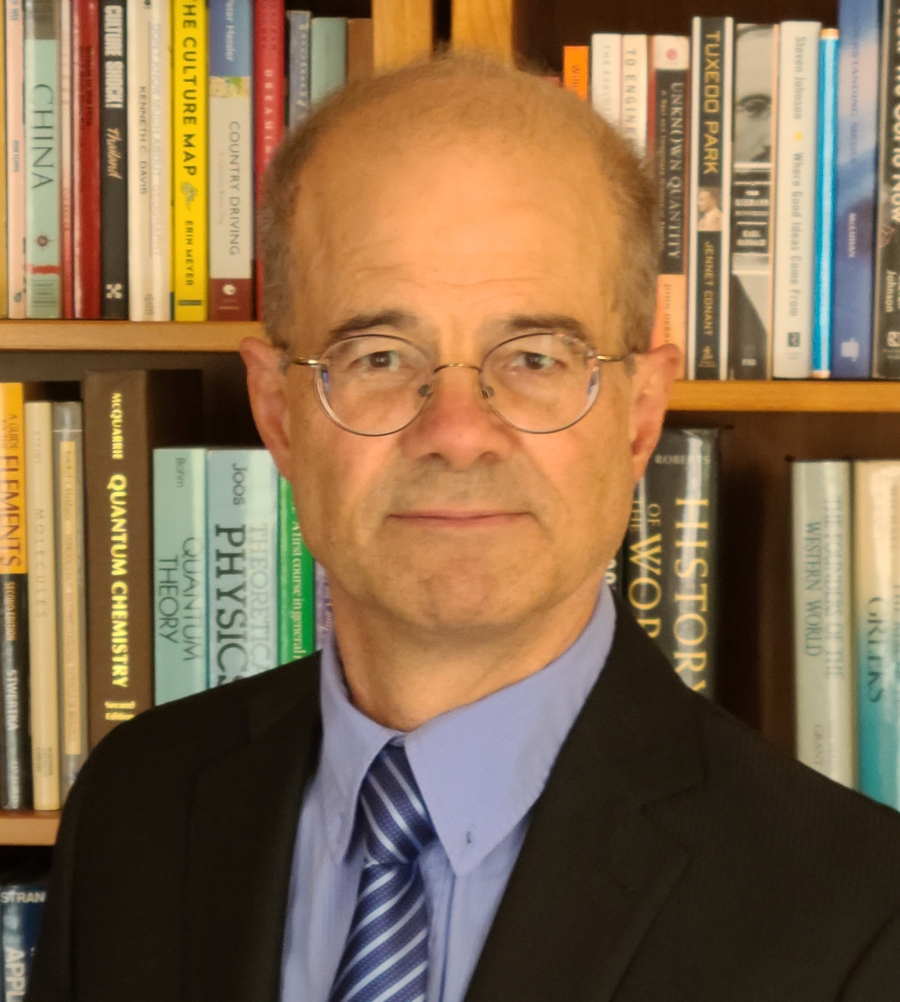
Clinton Staley
Professor of Computer Science
Dr. Clinton Staley is a professor in the Center for Science, Technology, Engineering and Mathematics. He holds a BA in Mathematics and English from Principia College, and an MS and PhD in Electrical and Computer Engineering from UC Santa Barbara. Staley has 40 years of combined experience in academia and industry. He has taught computer science at UC Santa Barbara, Cal Poly SLO, and at Principia College, and has built software and managed software development projects for a variety of small and large organizations, including several small software companies of which he was a cofounder. He is the holder of 8 U.S. patents.
.svg)

Julia Stone
Senior Manager of Development Operations
.svg)

Jeremy Tate
Jeremy Wayne Tate is the founder and CEO of the Classic Learning Test and a national leader in there vival of classical education. He has been featured on Fox News, MSNBC, the Wall Street Journal, the Washington Post, Inside Higher Ed, and the New York Times. Prior to founding CLT, Jeremy served as Director of College Counseling at Mount de Sales Academy in Catonsville, Maryland.
He received his Bachelor of Science in Secondary Education from Louisiana State University and a Masters in Religious Studies from Reformed Theological Seminary. Jeremy and his wife, Erin, reside in Annapolis, Maryland with their six children. You can find Jeremy on Twitter @JeremyTate41.
.svg)
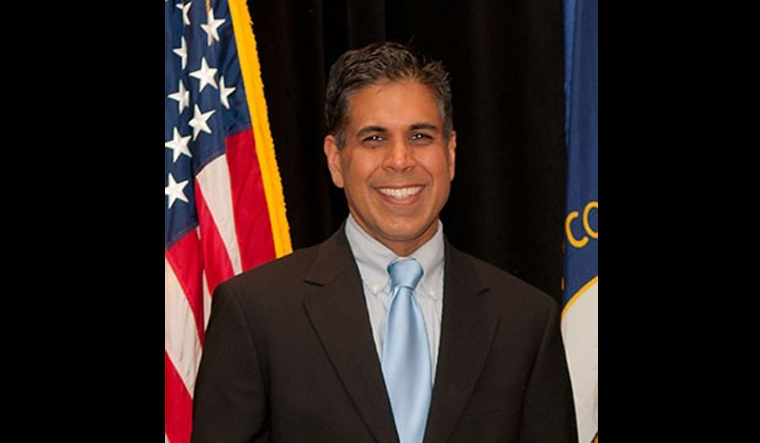
Amul Thapar
U.S. Circuit Judge of the U.S. Court of Appeals for the Sixth Circuit
.svg)

Rabbi Abraham Unger
Rabbi Abraham Unger is founding Head of School at Emet Classical Academy in New York City. Within one year, Emet has opened both a middle school and high school to become one of Manhattan's most competitive private schools. Prior to becoming Head of School, Dr. Unger was a tenured professor in the Department of Government and Politics and Wagner College in Staten Island, where he also served as Director of Urban Programs. He was recruited in 2006 as part of a faculty and administrative team to grow Wagner College into a Northeast regional liberal arts leader under an innovative curriculum called The Wagner Plan.
Dr. Unger taught urban policy and oversaw that public administration major. While in Higher Education, Dr. Unger grew a consulting practice structuring public private partnerships in urban economic development. He has published three peer reviewed books on public policy and numerous articles. Dr Unger has also held research appointments at NYU and Fordham University. Before academia, Dr. Unger was Executive Director at the American Friends of Rambam Medical Center and Mosaic Colony of the Arts.
.svg)
Erin Davis Valdez
Executive Director of the Incubator of the Center for Education & Public Service

Erin Davis Valdez
Executive Director of the Incubator of the Center for Education & Public Service
Erin Davis Valdez is the Executive Director of the Incubator of the Center for Education and Public Service at the University of Austin. She has been passionate about the transformational power of education all her life, having been given the gift of being homeschooled. She taught for over a decade in Austin-area schools and served as an assistant principal at a charter school in Lewisville. These experiences have given her the opportunity to see first-hand how students can thrive when they have excellent options.
Valdez joined the Charles Koch Foundation in 2015 where she helped to grow a portfolio focused on helping innovative K12 programs grow through higher education and other partnerships. At the Texas Public Policy Foundation, she conducted research on outcomes-based funding at the secondary and postsecondary levels, civics education, and workforce programs in Texas. She has testified before the Texas and U.S. legislatures and shepherded legislation expanding educational choices for K12 and postsecondary students.
Valdez earned an M.A. in Classics from the University of California, Santa Barbara and a B.A. in Classical Studies from Hillsdale College. She studied in Athens, Greece her junior year and worked as an excavator at the Agora archaeological site for three seasons.
Valdez has lived in the Austin area (on and off) since 1990, which counts as “native” these days. She enjoys cooking, reading, volunteering, and spending time with her husband Jeremy, her family, friends, and cocker spaniel, Scoops.
.svg)

Ricardo Vilalta
Professor of Computer Science
Dr. Ricardo Vilalta is a professor in the Center for Science, Technology, Engineering, and Mathematics at the University of Austin. He holds a Master's and Ph.D. in computer science from the University of Illinois at Urbana-Champaign; his research focuses on machine learning, statistical theory, artificial intelligence, and astroinformatics. Dr. Vilalta has received several awards, including a Fulbright scholarship, the Invention Achievement Award from IBM, the Best Paper Award at the European Conference on Machine Learning, and the CAREER Award from the National Science Foundation. Before UATX, Dr. Vilalta was a professor of computer science at the University of Houston and a researcher at the IBM T.J. Watson Research Center in New York. Dr. Vilalta has published over a hundred papers on AI, machine learning, and its applications.
.svg)

Bari Weiss
Editor-in-Chief, CBS News; Founder, The Free Press
.svg)

Mary Wells
Mary K. Wells is a co-founder and senior partner at Bellwether with over 20 years of experience in education as an organization leader, consultant, and in philanthropy.
As a first-generation college graduate, Mary is passionate about the power of public education. She splits her time between driving Bellwether’s AI strategy and working with organizations to provide strategic advising support. She has deep expertise in helping organizations scale and build sustainability. Her clients at Bellwether include charter management organizations, teacher preparation programs, professional learning organizations, state education organizations, and philanthropies.
Prior to launching Bellwether, Mary led STEM and new school investments for the Texas High School Project (now Educate Texas), where she was a founding team member. Prior to this, Mary spent eight years at Bain & Company as an analyst, consultant, and manager, where she advised Fortune 500 companies on growth strategy, new business development, and post-merger integration issues.
Mary holds a bachelor’s degree from Harvard University and a master’s from the Stanford Graduate School of Business. Raised on a farm in Michigan, Mary currently resides in San Antonio, Texas.
.svg)

Jacob Wolf
Director of the Program in American Civilization & Assistant Professor of Politics
Jacob Wolf is a founding faculty member of the University of Austin, where he is Director of the Program in American Civilization and an Assistant Professor of Politics. He was previously Assistant Professor of Government in the Honors College and the College of Arts and Sciences at Regent University, where he also served as the Associate Director of the Lincoln Program in America's Founding Ideals. Before these positions, Jacob was the 2020-2021 John and Daria Barry Postdoctoral Fellow in the James Madison Program at Princeton University.
He received his Ph.D. in political science from Boston College in 2020, double majoring in political theory and American politics. His current research employs insights from those two disciplines to understand contemporary changes in American religious beliefs and practices. In particular, he studies the social and religious ramifications of individualism—especially expressive individualism. His overall scholarly objective is to demonstrate how ideas and presuppositions about human nature have profound consequences for both individuals and society.
His academic writing has been published in Perspectives on Political Science, Political Science Reviewer, Interpretation, and The Public Discourse. His book manuscript, tentatively-titled "Harmonizing Heaven and Earth," argues that individualism—and not secularization—is responsible for large scale changes in American religion. He has been awarded scholarly fellowships from The Philadelphia Society, the Intercollegiate Studies Institute, the Jack Miller Center, the Philos Project, and the Institute for Humane Studies. He is the 2022 recipient of the Jack Miller Center's Award for Excellence in Civic Education as well as the 2018 Donald J. White Award for Teaching Excellence from Boston College.
.svg)

Patrick Wolf
Dr. Patrick J. Wolf is a Distinguished Professor of Education Policy and the 21st Century Endowed Chair in School Choice at the University of Arkansas. Recently he served as Interim Head of the Department of Education Reform. He has led influential studies of private school voucher programs in Washington, DC; Milwaukee, WI; the state of Louisiana; and Delhi, India. Research projects led or co-led by Wolf have received 45 research grants and contracts totaling over $23 million.
He has authored, co-authored, edited, or co-edited five books and over 200 journal articles, book chapters, and policy reports on private school choice, public charter schools, special education, civic values, public management, and campaign finance. Education Week consistently ranks him among the 200 most influential education scholars in the U.S. He received his bachelor’s degree from the University of St. Thomas in St. Paul, MN, and his master’s and doctorate from Harvard University.
.svg)
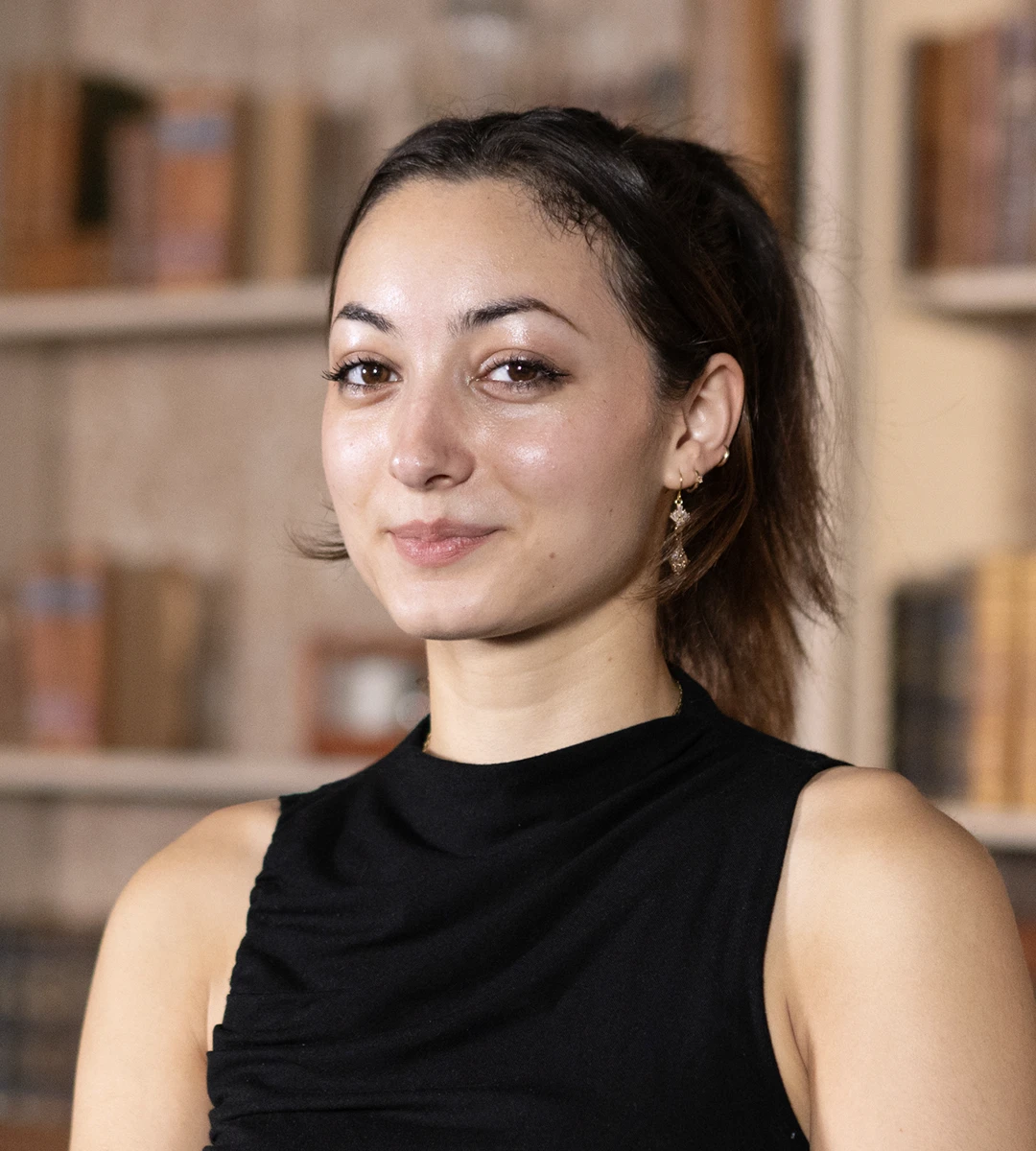
Eliana Yang
Admissions & Visitor Experience Manager
.svg)

Andrew Young
Civil Rights Leader, Ambassador, and U.S. Congressman
.svg)

Jonathan Yudelman
Assistant Professor of Political Theory
Jonathan Yudelman is Assistant Professor of Political Theory in Intellectual Foundations at UATX. He holds a Ph.D. in Political Science from Boston College and from 2020-2024 held postdoctoral positions at Princeton, Harvard, Baylor, and Arizona State University. His current research focuses on early modern political theory, the idea of progress, sources of political authority, and the intersection of politics and religion. His non-academic writing covers topical political, cultural, and religious issues and has appeared in numerous publications. He is currently preparing a book manuscript, Hobbes and the Birth of Ideological Politics.
.svg)
learn more
Undergraduate Program (Fall 2025)
Our distinctive undergraduate curriculum will combine the rich and varied inheritance of the past with the most compelling ideas of the present to help students see things whole, form sound judgment, and translate knowing into doing and making. Students will train with the world’s leading scholars and innovators, while creating and building with purpose.
News & Updates
"It's An Academic Dream Team"
"'We Don't Want To Be Yale': New UATX Constructing A Different Model Of Excellence"
"How To Build A University Unafraid Of True Intellectual Diversity"
Our Principles
UATX prepares thoughtful and ethical innovators, builders, leaders, public servants and citizens through open inquiry and civil discourse. Our commitment to the pursuit of truth arises from our confidence that the nature of reality can be discerned, albeit incompletely, by those who seek to understand it, and from our belief that the quest to know, though unending, is an ennobling, liberating, and productive endeavor.


